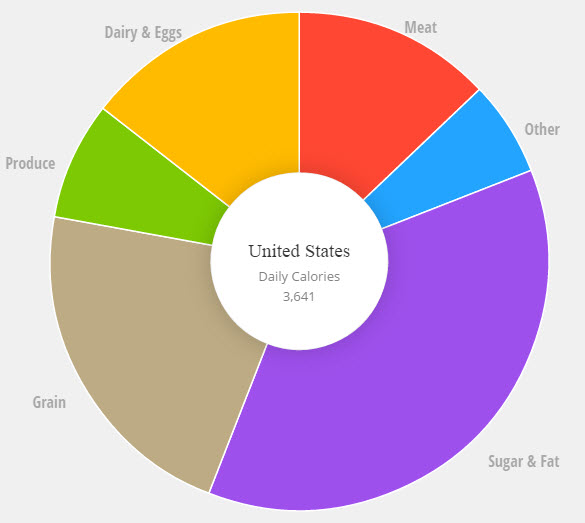Getting "Fed Up" / Trends Not Sweet
 Almost 60% of the U.S. diet is made up of sugar and carbohydrate. Since 1977, Americans have doubled their daily intake of sugar, lurking in processed foods like cereal and catsup. Our sugar intake has lead to a corresponding rise in obesity, metabolic syndrome and chronic conditions that are the result of a pancreas that eventually exhausts itself from producing the hormone insulin.
Almost 60% of the U.S. diet is made up of sugar and carbohydrate. Since 1977, Americans have doubled their daily intake of sugar, lurking in processed foods like cereal and catsup. Our sugar intake has lead to a corresponding rise in obesity, metabolic syndrome and chronic conditions that are the result of a pancreas that eventually exhausts itself from producing the hormone insulin.
How could it be that from 1980 to 2000, fitness memberships doubled along with a corresponding doubling of the obesity rate? If our willpower is to blame why do we have obesity in 6 year olds? And of all the nutrients listed on a food label, how is it that sugar, a substance more addictive than cocaine, is the only nutrient that a food manufacturer does not have to disclose under the food label's percentage daily recommended allowance guidelines? Could it be that Americans were misled into believing that a "low-fat" diet was best for us based on junk science? Could federal guidelines have been influenced by powerful food lobbies and corporate profits placed ahead of our public health interests?
Realizing we now have an epidemic that we are not going to be able to exercise our way out of, the U.S. Preventive Task Force (USPTF) has recommended coverage for progams that have demonstrated clinical success in reversing symptoms of Metabolic Syndrome be covered under the Affordable Care Act (ACA) at 100% with no cost sharing. In a future post, I'll share more about how and when employers must cover behavioral weight management as a benefit and what our ACAP Health subsidiary is doing to help companies reverse these metabolic trends caused by sugar.
Our company will continue to endorse only programs that adhere to evidence based guidelines from trusted voices like Dr. David Katz, Dr. Mark Hyman, Dr. Robert Lustig, Tim Church, M.D., M.P.H., Ph.D and Dr. David Kessler. Please commit to watching "Fed Up", produced by Katie Couric and Laurie David.